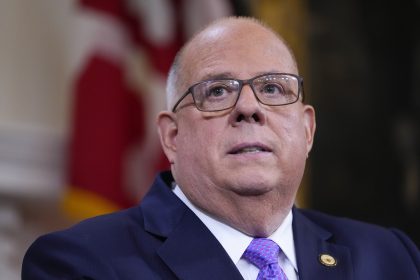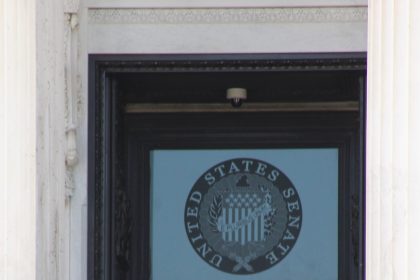Senate Judiciary Committee Scrutinizes Abusive Conservatorships

Nicholas Clouse, a 28-year-old from Huntington, Indiana, suffered a traumatic brain injury from an automobile accident in 2011, that led to his parents obtaining full guardianship over him.
“On the rationale that someone might take advantage of me if I were to receive a large sum of money, my parents convinced me they should become my legal guardians,” Clouse recalled during a hearing held by the Senate Judiciary Committee last week.
“They told me to sign a piece of paper and that it would let them take care of the lawsuit and I could just focus on getting better.” he continued. “There was no discussion about what this meant long-term, what rights would be taken away, what it meant for my life, or whether something less restrictive might have met my needs at the time.”
Following the accident, Clouse remained under the guardianship of his parents for 10 years, which he said deprived him of the right to act as an independent adult despite improvement in his medical condition.
“I wasn’t allowed to make financial decisions or medical decisions. I wasn’t allowed to decide who I was allowed to hang out with, or where I was allowed to go. I was pretty much treated like a child in every aspect, even down to what phone plan I could be on, if I had a phone,” Clouse said.
In early 2020, Clouse reached out to the Indiana Disability Rights, a disability rights agency that provides legal and other advocacy services to people with disabilities, to represent him in what became a lengthy legal proceeding to try to end the conservatorship.
It took a year and half and an extensive psychological evaluation to prove to the courts that his guardianship was no longer necessary.
“Indiana guardianship laws do not even require that the continued need for guardianship ever be reviewed by the court after one is established. If the Indiana Disability Rights had not accepted my case and offered to represent me free of charge, I am not sure I ever would have had a path out,” Clouse said.
Clouse is one of nearly 1.3 million people in the United States who have had the courts strip away his rights to things like medical and financial decisions through a conservatorship.
“If it was this difficult for someone in my position to be released from an unnecessary guardianship, I cannot imagine what it is like for those who are not as privileged,” said Clouse.
Clouse was fortunate to be one of the few individuals to get out of his legal guardianship on Aug. 24, but according to legal representatives, his situation was rare.
“It is very difficult to terminate a guardianship or conservatorship. It is very resource intensive,” said Morgan Whitlatch, legal director at the Quality Trust for Individuals with Disabilities in Washington, D.C.
Whitlatch has represented people in restoration of rights proceedings as an attorney for nearly 20 years, and she said that individuals face all sorts of barriers when trying to end a conservatorship.
One of the barriers, she said, is that many attorneys refuse to represent people under guardianship because of concerns that they are not ethically able to do so for someone who is considered incapacitated. In most states, the person under conservatorship is also responsible for paying all the legal fees.
“We really need to rethink how people get under guardianship in the first place. It’s much easier to establish a guardianship than to terminate one,” said Whitlatch.
David Slayton, the vice president of Court Consulting Services at the National Center for State Courts in Bellevue, Texas, has been working to rethink the process of how guardianships are established, and oversee implementing reforms in the state.
In the early 2000s, Texas began issuing reforms for conservatorships, such as requiring licensing testing and regulation of private professional guardians, putting limits on the number that one can have, requiring continuing education, and setting up a process to file guardianship complaints and conduct investigations.
Slayton said that conservatorship cases like Clouse’s, in which he suffered a traumatic brain injury and his condition improved but there was no change in guardianship, have prompted legal reforms in the state that require a higher burden of proof to continue or begin a conservatorship.
“One of the requirements under Texas law is that when the doctor is doing the evaluation for guardianship, they have to state in their report what the likelihood of improvement is, and what timeframe is expected, and the judge is required to re-evaluate the need for continuing guardianship,” said Slayton.
According to Slayton, Texas law now requires that every individual filing for guardianship, every attorney involved, and all the judges must consider all alternatives to guardianship, and all supports and services that could be offered. The judge has to find by clear and convincing evidence that there are no alternatives to guardianship.
“We’ve had situations in the state where those private professional guardians had abused that responsibility, and then had their license revoked,” said Slayton.
The state has also worked to try to reduce the chances of financial exploitation from guardians. In a review of over 55,000 cases, the Texas’ judiciary found that in 5,261 instances the individual was deceased without the guardian alerting the judge.
“In Texas, we looked at 55,000 guardianship cases and the vast majority are by people who are trying to protect their loved ones and are doing the right things. But we have found over and over again financial exploitation occurring,” said Slayton.
At the federal level, at least $50 billion in assets have been controlled under a conservatorship nationwide, according to a 2016 estimate from National Center for State Courts, a nonprofit focused on improving judicial administration.
The Conference of Chief Justices and Conference of State Court Administrators have worked collectively to make improvements to conservatorships to end financial exploitations for over a decade, making recommendations for reform and endorsing at least 14 resolutions in the past 10 years.
Unfortunately, according to Sen. Richard Blumenthal, D-Conn., most state courts lack the resources to put these kinds of reforms into action.
“Most states don’t have a centralized data system on conservatorships and the data they do collect varies from state to state,” said Blumenthal.
“There is a need around the country for additional data collection, additional reforms, and incentives for those state court systems to do more,” said Blumenthal.
Blumenthal said that Congress is working to strengthen state systems and make sure civil rights are protected under conservatorships by establishing better transparency, accountability and overall reform of the current system.
Steps to get there, according to Blumenthal, will include sharing information and best practices across jurisdictional lines to improve data collection, and strengthening the federal enforcement surrounding rights and abuses of conservatorships based on the disability rights section of the Department of Justice Civil Rights Division.
“We can and we must fight for reforms for these legal straitjacket arrangements that are potentially abusive and certainly a disservice to many people that are under them,” said Blumenthal.























